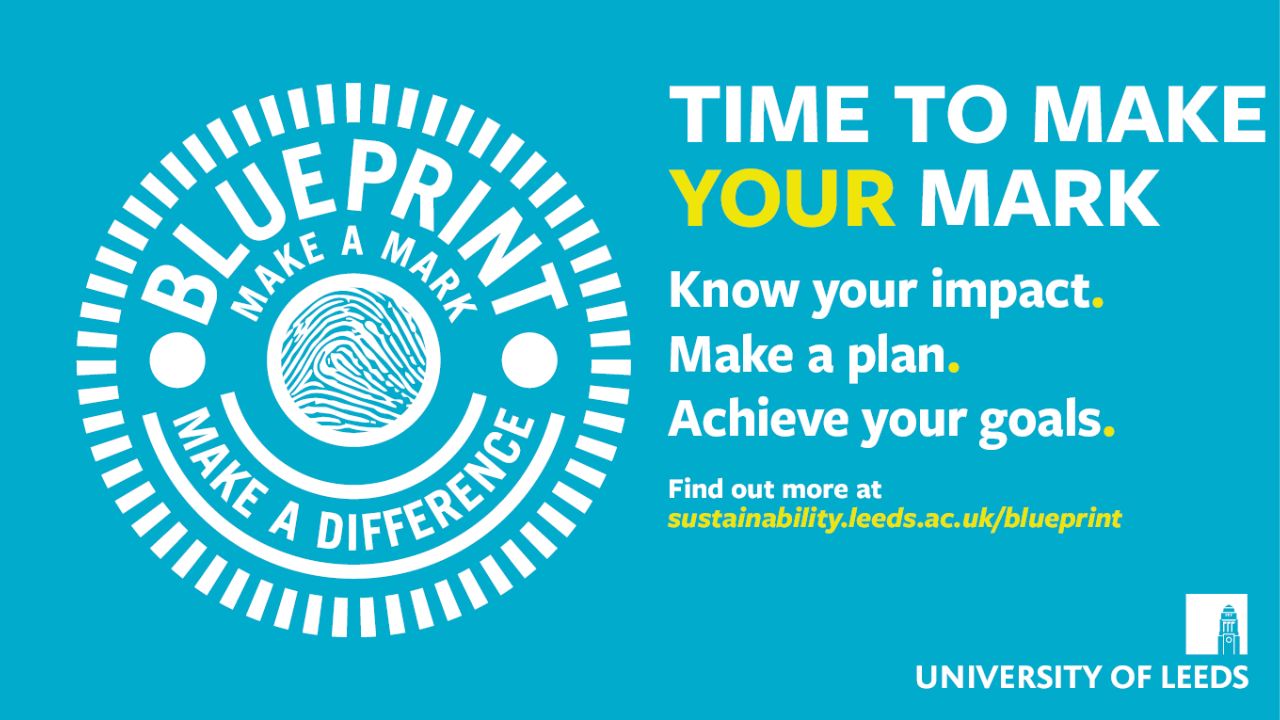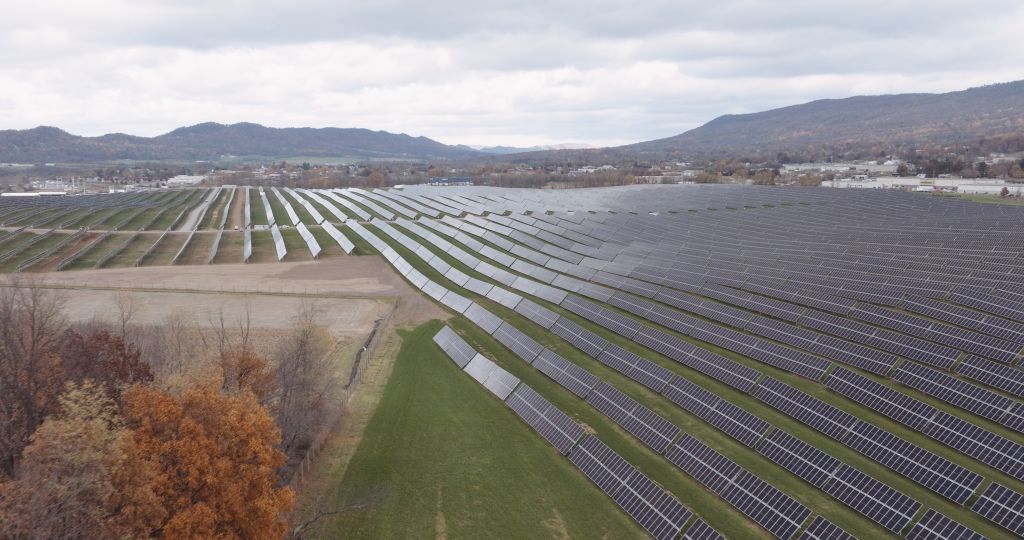2024 Award Winner: University of Leeds
Blueprint: co-created, people-driven, and bespoke sustainability plans
For a large institution embedding sustainability is a daunting task. The University of Leeds’ solution is a flagship staff engagement programme called Blueprint.
Launched in 2018, Blueprint helps teams to develop bespoke five-year plans that embed sustainability within their operations. Led by the Sustainability Service, Blueprint supports teams to identify and achieve their own sustainability goals, incorporating objectives within their sphere of influence whilst also contributing to university-wide goals, such as achieving Net Zero by 2030.
Blueprint's unique model supports the diversity of departments at Leeds, placing flexibility at the forefront. Bespoke plans are co-created with staff through scoping meetings and ideation workshops. This enables them to draw out what matters most and what is achievable. Teams are given on-going support, sharing knowledge, insight, and ensuring alignment to institutional sustainability goals.
This approach cultivates a strong sense of ownership, empowering teams to create innovative solutions, and ultimately leading to successful outcomes.
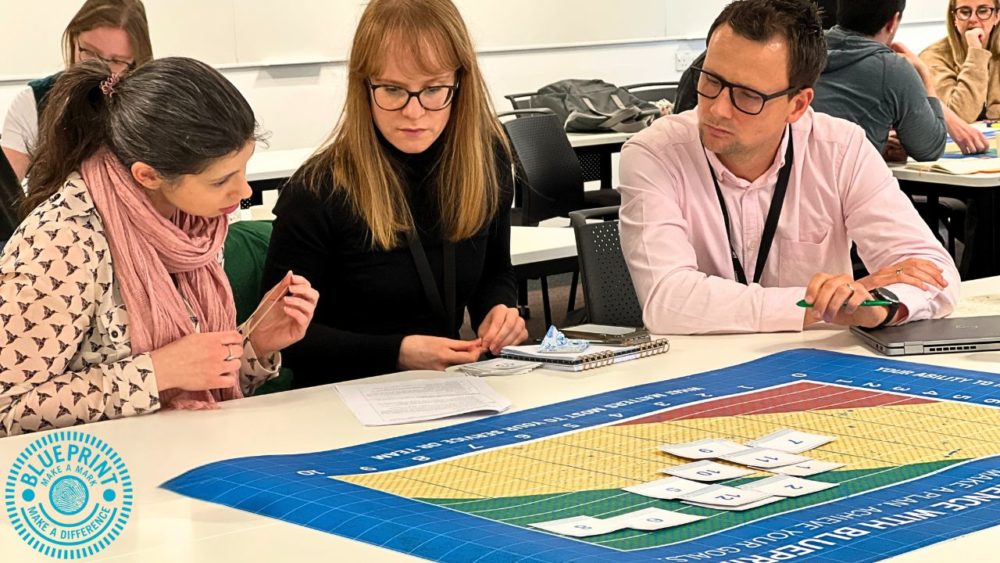
Blueprints contain a range of objectives spanning engagement, environmental and social impact. Examples include increasing sustainability literacy amongst staff and students, reducing energy usage, remodelling waste systems, improving wellbeing, and engaging with community and third sector partners. All Blueprints promote collaboration between teams and across campus to share best practice.
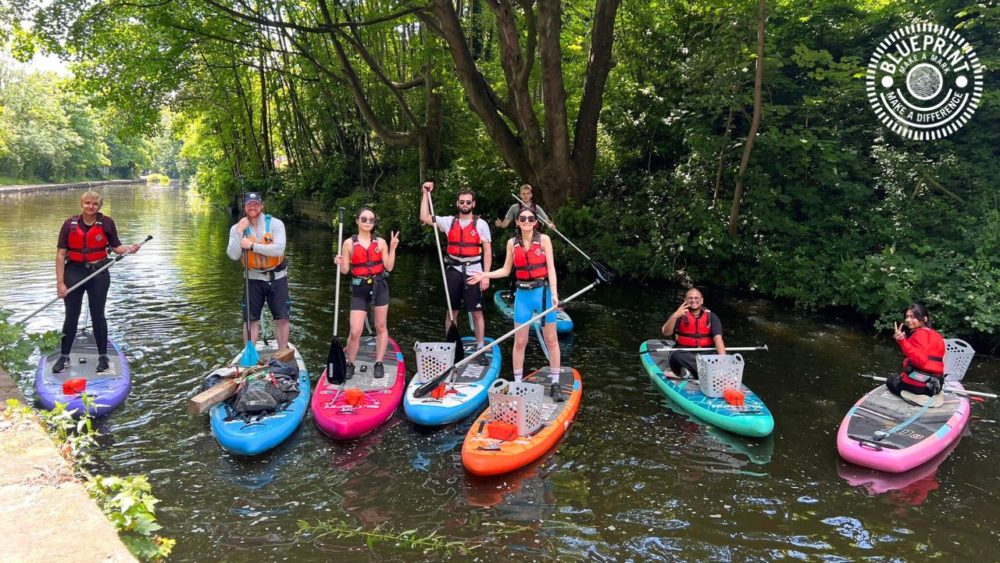
At the start of 2025, there are twenty live Blueprints from a diverse range of Schools and Services. These cover University-wide services such as Cleaning, Catering, Libraries, and Educational Engagement alongside Faculty and School-level teams including Leeds University Business School (LUBS), Biological Sciences (FBS) and Dentistry. Seven more plans are in development.
The range of initiatives delivered are extensive. The LUBS business travel policy encourages adoption of slow travel and is influencing institutional policy creation, contributing to a pilot study. LUBS also created Climate Action Training, open to all staff and students.
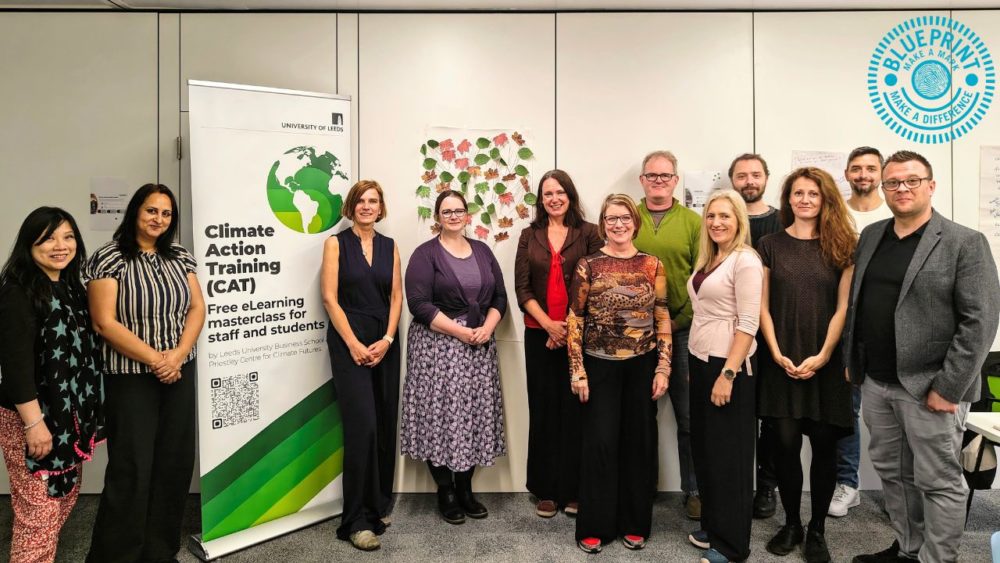
The School of Performance and Cultural Industries completed a sustainable procurement review, using their findings to reduce the impact of their performances. Computer Science mapped sustainability in their curriculum, supporting the University’s Sustainable Curriculum programme and identifying routes to embed sustainability into teaching.
The new FBS Blueprint includes a target to achieve Laboratory Efficiency Assessment Framework (LEAF) accreditation for 100% of their research and teaching labs and is planning to embed sustainability into every job description.
The School of Food Science and Nutrition have 100% gas-free labs and are also aiming for School-wide LEAF accreditation.
Residential Services are one of the longest running teams. They created volunteer days for students, increased charity donations, reduced waste, and funded student projects to create biodiversity action plans and circularity projects across halls of residence.
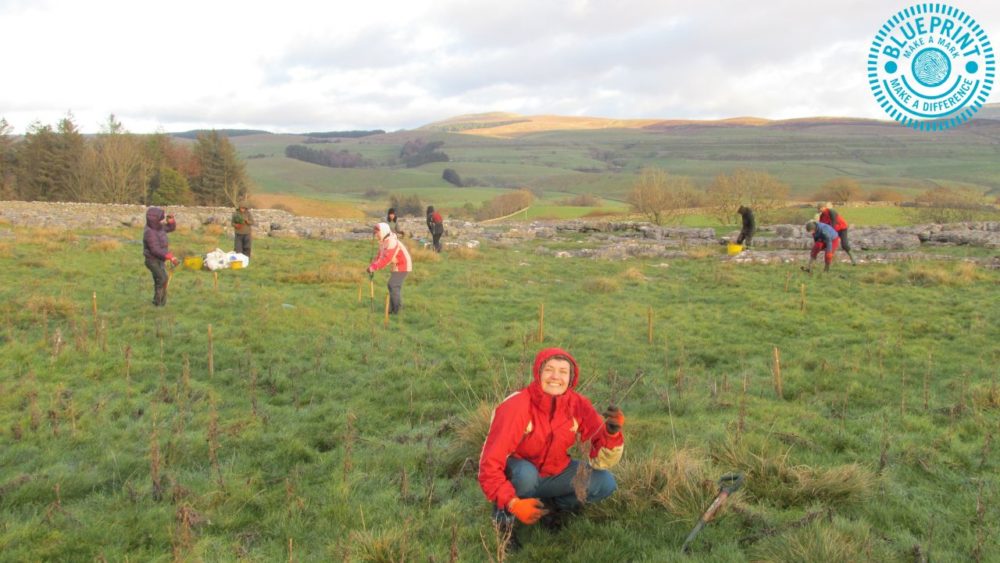
The success of Blueprint is evident, with the programme embedded across the University. Blueprint’s flexible, people-driven approach means it is suitable for all departments, no matter their size or operational focus. The programme aims to facilitate development of a plan for every department within the University, resulting in a collaborative and supportive network of motivated and passionate teams across the entire institution.
Learn more: Blueprint Program
2024 Award Winner: University of Pennsylvania
A Solar-Powered University
Universities have a critical role to play as leaders in sustainability, but they can’t do it alone. With a recent Power Purchase Agreement (PPA), the University of Pennsylvania (Penn) contracted with AES Corporation to build two solar farms which will meet the equivalent of approximately 70% of the electrical demand of both Penn and the University of Pennsylvania Health System in the greater Philadelphia area, reducing Penn’s carbon footprint by 26%.

Penn committed to carbon neutrality by 2042 by signing the President’s Climate Commitment in 2009; the PPA thus marks a major milestone toward this neutrality goal, as laid out in the University’s Climate & Sustainability Action Plan 4.0.
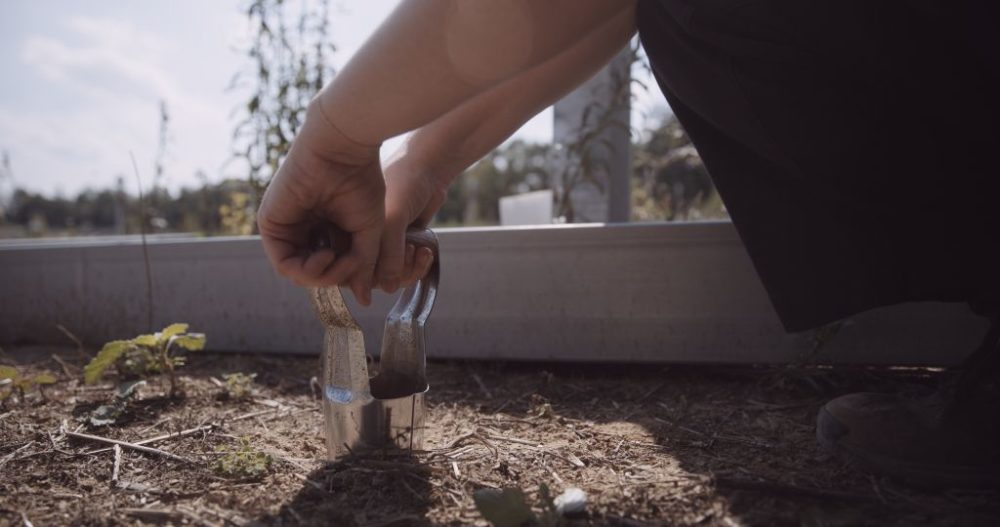
Penn's PPA is innovative in a number of ways, starting with the size: the PPA initiated the largest solar project in the state of Pennsylvania. The project consists of two solar arrays that sit on 1,600 acres in two counties in central Pennsylvania, including more than 485,000 panels with a capacity of 220 megawatts.
As part of the agreement, AES is funding renewable energy research by Penn students and faculty with $50,000 for each of the first five years of the solar arrays’ operation. This research support has so far funded projects that include assessing carbon sequestration in solar farms, studying climate resilience and ecosystem restoration at a demonstration farm, and developing a global climate justice project-based learning hub. Additional funded projects are just getting off the ground that will propel a study of stormwater management on the solar fields and a survey of community acceptance of large-scale solar projects.
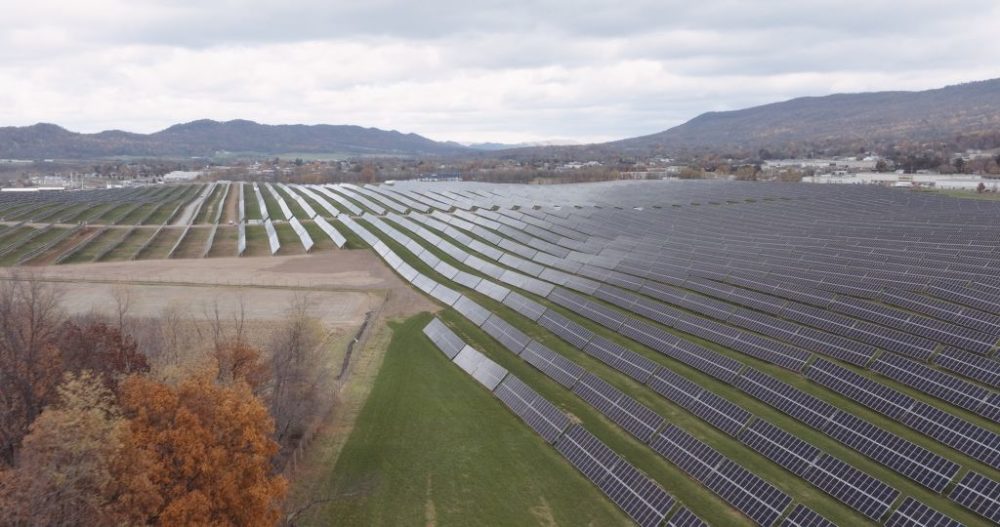
The work provides experiential learning opportunities for students, research support for faculty, and offers AES and landowners an opportunity to learn more about best practices for running a large-scale solar facility. With more interest in turning to renewable energy sources to transition away from fossil fuels, such research will inform a holistic understanding of impacts on ecosystems, charting a path forward to accelerate clean energy projects.
Learn more: Penn's Power Purchase Agreement
